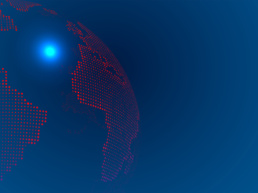The dispute between the United States and China has been heating up over the past decade. From Chinese cyberattacks during US elections still with Barack Obama to the fiery rhetoric during the trade war, the scenario of a new Cold War is beginning to be pointed out by many experts. But is it really like that? And what place will be reserved for Europe? Our guest this week is the right person to better understand what’s at stake.
Lívia Franco holds a Master’s degree in International Relations from the University of Louvain, in Belgium, a PhD in Political Science from the Institute of Political Studies of the Universidade Católica Portuguesa (IEP-UCP), a Visiting Scholar at Brown University, a Graduate Student at Boston College, as well as a fellow of FLAD, FCT, and Fulbright. Currently, Lívia Franco is a Professor and Main Researcher at IEP-UCP, an Associate Researcher at the European Center for Foreign Relations, and will be FLAD’s Visiting Professor at Georgetown University.
It is precisely all this accumulated knowledge that we have explored in this episode of the Atlantic Talks. At a time when there are many questions about the future of the world order, about who will lead it and in what ways, Lívia Franco offers us a different view of the conflict between the US and China and the idea that we are experiencing a new Cold War.
“I don’t necessarily think that Europe is not the fundamental strategic place. Due to the logic of globalization, there are many fundamental strategic places. This is the big difference from the context of the Cold War of the second half of the 20th century. (…) Unlike the Cold War, this is a context where there are no true peripheries.” – Lívia Franco
This logic of dispute for the leadership of the world order brings with it fundamental issues for the European Union. Despite being traditionally allied with the United States, China’s economic expansion and the growth of its political influence puts the European Union in a position that is not obvious at this point, also due to the nature of the organization.
“This is a greater challenge for Europe than it was during the Cold War, because the great risk that now arises in relation to the conflict, to this global competition between these two great powers [China e EUA], is that Europe really has to define which side it is on. And that definition is not evident to Europe.” – Lívia Franco
And Portugal, where does it stand in the middle of all this? As a member of the European Union, and at the same time a country that is the target of a lot of Chinese investment – given its size – how does it position itself in this dispute?
“In the context of a severe health crisis, China has come to the rescue of European countries with great intensity and, of course, with an agenda and objectives that are political. Portugal was at the same time one of the countries that received the most and was most open to this diplomacy, but also with more caution and awareness that the intentions of that policy were not merely sanitary.” – Lívia Franco
Don’t miss this episode, already available on the platforms where you normally listen to your podcasts. You can also find this episode in the links down below.
Related Posts
February 17, 2025
Launch of the FLAD Rui Machete Award: 200 thousand euros to distinguish paths of excellence in the Portugal-USA relationship
The Award, worth 200 thousand euros,…
January 14, 2025
Applications Open: FLAD Political Science Award 2025
The two students with the best master's…


